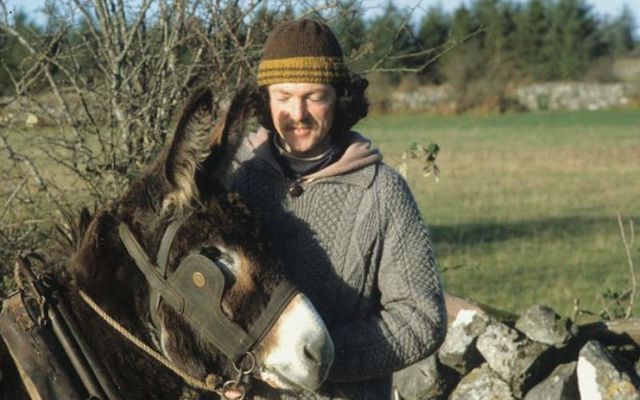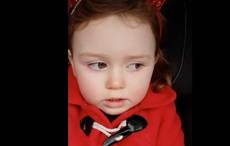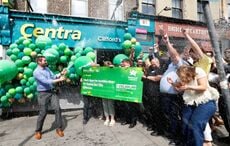On a long-ago summer evening, as I traipsed the stone-clad hills of West Cork with my donkey, Missie, we heard a cascade of giggles up ahead. Quickening our pace, I soon spotted the source of merriment; two charming girls who happily directed us to their parent’s unusual home, an old converted police barracks.
Upon arriving, I shortly found myself enjoying a meal of spuds and lamb chops with Jerry and Bridie Kennedy, Grandma Kate McCarthy, and the Kennedy’s five lovely children -- Derry, Pat, Mary, and the two rascals, Catherine and Anne.
"Do you know anything about Mr. Marconi, the man who invented the radio?" Bridie asked over our delicious meal.
"Oh, yes," I piped up eagerly. "I once visited the Marconi Station at Cape Cod where the first two-way transoceanic message was completed, with their sister station in Cornwall, England, I believe."
"’Twas on my father’s land at Brow Head, near Crookhaven, where the birth of the wireless took place," said Grandma McCarthy proudly.
"At the turn of the century, Mr. Marconi succeeded in transmitting a message across St. George’s Channel to Cornwall. Not alone that, but every morning I had the privilege of bringing milk and eggs to Mr. Marconi in the new house they had built there."
"The actual Mr. Marconi," I repeated. "Guglielmo Marconi?”
"The very fella," she replied, her cheeks of 90 years aglow.
"An excitable gentleman of Italian nobility, always tipping and tapping the Morse Code into a large black box. Mr. Marconi was also the first to drive a motorcar from Bantry to Brow Head, fulfilling an old legend that a headless horse would one day make its way to Mizen Head.
"But what I remember most was turning on and off the lights in that big house," she continued excitedly, "for all in the country had paraffin lamps at the time. Just a click of the switch and, by jinx, his dark house turned into day and back again. My schoolmates, of course, wouldn’t believe a word of it, and why would they? But didn’t Mr. Marconi allow me to invite a few pals into his house, so I could show them the magic myself."
"That was very kind of him," I nodded.
"Yes, but I tell you, things didn’t go too smoothly for him at first, as he found himself in hot water with the locals after erecting two tall antennas.”
"Why was that?" I asked, as the younger Kennedy children huddled around their grandmother.
"It rained terribly for weeks after the two masts were erected, you see, and the natives blamed Mr. Marconi, believing his needles had punctured the sky. Can you imagine! I suppose the dear fellow wondered what planet he’d landed on a’tall when coming to West Cork. But his mother was Irish-born, you know, the granddaughter of John Jameson, the famous whiskey distiller. And he himself married an Irish girl, Beatrice O’Brien."
"Grandma," interrupted Derry, "didn’t the great inventor, Nikola Tesla, call Mr. Marconi a donkey, begging your pardon, Kevin."
Kate reddened in embarrassment. "He did, indeed, for the two great inventors were always competing against one another. And I suppose it didn’t sit well with Tesla when Marconi won the Nobel Prize for Physics in 1909.”
Grandma McCarthy gave her youngest granddaughter a playful squeeze. “When I was the same age as Catherine here, I’d spend all my free time at Brow Head," she reminisced fondly.
"There were 40 men stationed there, many with families whose children went to our school in Crookhaven. Fine English fellas, always giving me sweets.
"Of a Saturday, I’d go gamboling with their children, and we’d sit by the cliffs and watch their dads go semaphoring the great sailing ships that passed in numbers with colored flags. Aye, ships bound to the Americas from Cobh, many heavily laden with our own people from nearby Skibbereen, Clonakilty, and Ballydehob."

Love Irish history? Share your favorite stories with other history buffs in the IrishCentral History Facebook group.
Mrs. McCarthy’s tone turned mournful. "Oh, aye, thousands of immigrants who’d never lay eyes on either home or kin again after passing the loneliness of Fastnet Rock, the last foothold of dear Ireland."
I tried to break her sad reverie: "Are the antennas still standing at Brow Head? The ones at Cape Cod have toppled into the ocean due to erosion."
"The boys in the Rising quickly knocked them down," she answered without regret. "But the granite blocks used as foundations, weighing a ton each, must still be there. Brought in from Cornwall, they were."
At night’s close, Kate rose from her chair and took hold of my hand. "’Tis been a treat to meet the young man walking the country with a donkey."
"Big boast, that," I joked in return. "But it’s been a special honor for me to meet the woman who once delivered breakfast to Mr. Marconi."
"Each of us has a role to play in God’s grand mystery," she said reflectively, "however humble our roles may be."
_____
Kevin O’Hara is the author of “Last of the Donkey Pilgrims,” which chronicles his 1,800-mile walk around the coast of Ireland with a donkey in 1979. Visit his website at thedonkeyman.com
* Originally published in May 2024, updated in Oct 2024.




Comments